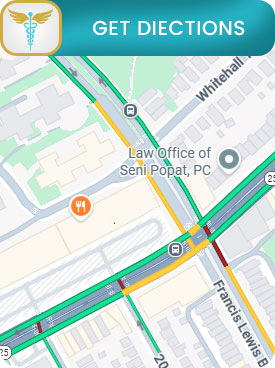ADHD/ADD Treatment Clinic in Queens NY
ADHD/ADD is a mental health condition that is associated with a number of chronic issues, including trouble paying attention, hyperactivity, and impulsive behavior. ADHD/ADD can cause relationship problems, poor work or school performance, low self-esteem, and other issues. With our customized ADHD/ADD treatment options available at Marcellus Wellness & Addiction, led by our board-certified psychiatric mental health and adult nurse practitioner, Jean-Jeffrey Marcellus, you can improve your focus and productivity. If you or someone you know is struggling with ADHD, talk to our professionals. For more information, contact us today or schedule an appointment online. We are conveniently located at 205-07 Hillside Avenue Suite# 10, Queens, NY 11423.



Additional Services We Offer

Additional Services We Offer



